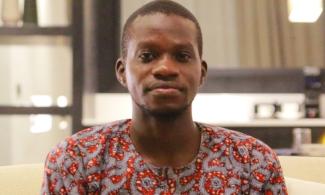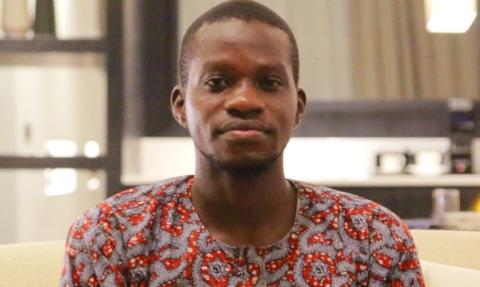
The #NotTooYoungToRun movement is a protest against democratic apartheid, one rooted in the fight for total inclusiveness in the governance architecture of the country

“Each generation must discover its mission, fulfil it or betray it in relative opacity.”—Frantz Fanon.
The president’s assent to the Constitution of the Federal Republic of Nigeria (fourth alteration, No. 27) Act, 2018 popularly known as the Not Too Young To Run bill ought to elicit joy in the hearts of the millions of youths whom it was intended for. It was supposed to restore their confidence that in an atmosphere where political realities are stacked against them by a political class populated by grey beards and bald heads, their rights to be voted for gained national traction. The #NotTooYoungToRun movement is a protest against democratic apartheid, one rooted in the fight for total inclusiveness in the governance architecture of the country. Like apartheid South Africa, the blacks sowed while the Afrikaans reaped; in Nigeria, the youth vote, the old win. It’s a world of contradictions, a reality that mimics the unjust past under the illusion of an embrace of a utopian future.
Like feminism which remains a stark rebuke of a patriarchal world in its most crude and extreme manifestations, what is today regarded as young ageism was birthed to query the perversion in leadership recruitment in our often touted modern world which although is driven by the energies and vigor of the youthful population, excludes them from partaking in decisions that ad nauseam, affect their lives and livelihood. The consequences are widespread and far-reaching. Even with the passage and signing of the bill into law, the perception that the number of grey strands on the head guarantee, exclusively, experience and expertise in leadership and governance would hardly dissipate.
Expectedly, President Buhari’s signature has put quite a number of youths in a cautionary mode. The moment he put pen to paper to make the bill law, they smelt mischief where others perceived opportunities. They reminisced about their experiences in the political game in the days when their visibility was constitutionally suited for the spectator stand. They remembered Abraham Lincoln and the freed slaves. Their minds went through the emancipation proclamation, how those sweet words from the republican head had little effect beyond the shelf it was stacked. The proclamation freed blacks on paper at a time Americans had just begun a new phase in the serfdom republic. The failure of the proclamation produced Reverend King’s dreamy eloquence at the Washington march a hundred years later, and brother Malcolm X’s nightmarish oratory over the same period.
At 73, Buhari was more than happy to give the bill a scale through. With youths coming out in droves to make a case for the breaking of barriers in the nation’s political arena, neither his provincialism nor conservatism could make him shelve an idea so dear to the minds of its protagonists who fortunately or otherwise hold the key to the continuation or discontinuation of his stay in office. Just like the Senators and members of the House of Representatives, the president saw very little or no damage the bill could do to his political fortunes. On the contrary, the bill signposted an opportunity for him and his party to cause the mostly naïve youth populace to wallow in grand delusion that they are being accommodated at the dining table.
The near ease with which this bill was addressed by the executive, state and federal lawmakers should make proponents and its supposed beneficiaries worried. It is enough to send them a distress signal that such a huge concession by a political elite so enamored with the crooked order might be a gimmick to keep them at bay. With a minimum age of 44 and maximum of 78, the average Nigerian senator is 59.17 years old—77.1% exceeding the average life expectancy of 53.8 years. The governors are just two years behind. The youngest is 42 while the eldest is 69 years; the mean age of the 36 governors is 57.25 years making 61.1% live in extra time. The ministers do not fare any better. With ages ranging between 51 and 71 years, averaging at 59.03 years, 65.7% of the big men and thick madams heading our ministries are way past the national average.
It is for this reason that the Nigerian youth must not enter into a hibernating mode in the name of “the success recorded with this bill.” This is because it was from the outset, an irritation to the fat cats who have made a spoil of democratic governance. It came as a deliberate perch upon the scrota of the guys who have barricaded the leadership system against black-haired intruders, no thanks to the military constitution authored to marginalize governance to the number of wrinkles on one’s face, a precursor to the contemptuous posture political actors portray. This is not surprising to say the least as the military is known to see the world in two dimensional compartments only—civilian or military, life or death, guilty or not guilty.
With the political space at home with all manner of impositions by godfathers and incumbents, one may not be too wrong to infer that the concession given by the political elite to reduce the age one could aspire for offices at the presidential, governorship, state assemblies and lower chamber of the national assembly was hatched for two major reasons.
First, there is yet to be an empirical study supporting the argument that should we retire and replace—as we should—all the old fellas in the political space with young bloods, the nation would immediately eject from the doldrums they intentionally put it. This thought is informed by the very fact that the few young elements who are engaged in politics across the length and breadth of the country have not exhibited traits that differ in any way, shape or form from the treacherous ones the loathsome old cargoes are notorious for. Permit me to make Kogi State my reference point. Yahaya Bello has proved to be a complete misfit. Dino Melaye represents a perfect plaque for political aberration. Both men rebuke calmness and sanity with satanic rigor. If the idiosyncrasies these duo are renowned for were to be indicative of those associated with the Nigerian youth, we can as well ask President Buhari to make the minimum age of contest 100 years—as faraway as possible from the ages these public irritants claim.
Secondly is the reality of our politics that makes it virtually impossible for anyone irrespective of his/her fecund ideas and intellectual acuity to command attention without breaking the bank to satiate the insatiable appetites of mostly vengeful voters. With this reality in the know, one wonders how this act will in any way translate to meaningful progress for the youth who on the average is either unemployed, underemployed, or at best, is yet to find his feet in the suffocating economic atmosphere beclouding the nation.
It is for this reason that many Nigerians see the signing of this bill as a pyrrhic victory, one that has no benefit in store for Nigerians save the few with either filial or sexual affinities with the mostly opinionated geriatrics who lord over us. It is nothing but tokenism that is not worth more than the piece of paper it was written on.
The clamor here is for food, land and human dignity. We must not lose sight of these objectives irrespective of how we hope to achieve them. The act was to encourage young minds slug it out with the old ones who have shown in clear terms, a lack of capacity to remove themselves from the constricting confines of ethnicity and religion to put the nation on the world map.
Since old habits die hard, hope appears to have been lost on the possibility of the current crop of geriatrics to do the needful in resuscitating the country. Nigerian youths must see this act as an opportunity to unlearn the divisive notes sung into their consciousness by a divisive elite, embrace modernity and conduce their enormous talents and energies to making a nation of this giant Shithole.
The mission is ours to fulfill or betray as we so choose.
Modiu can be reached on [email protected]